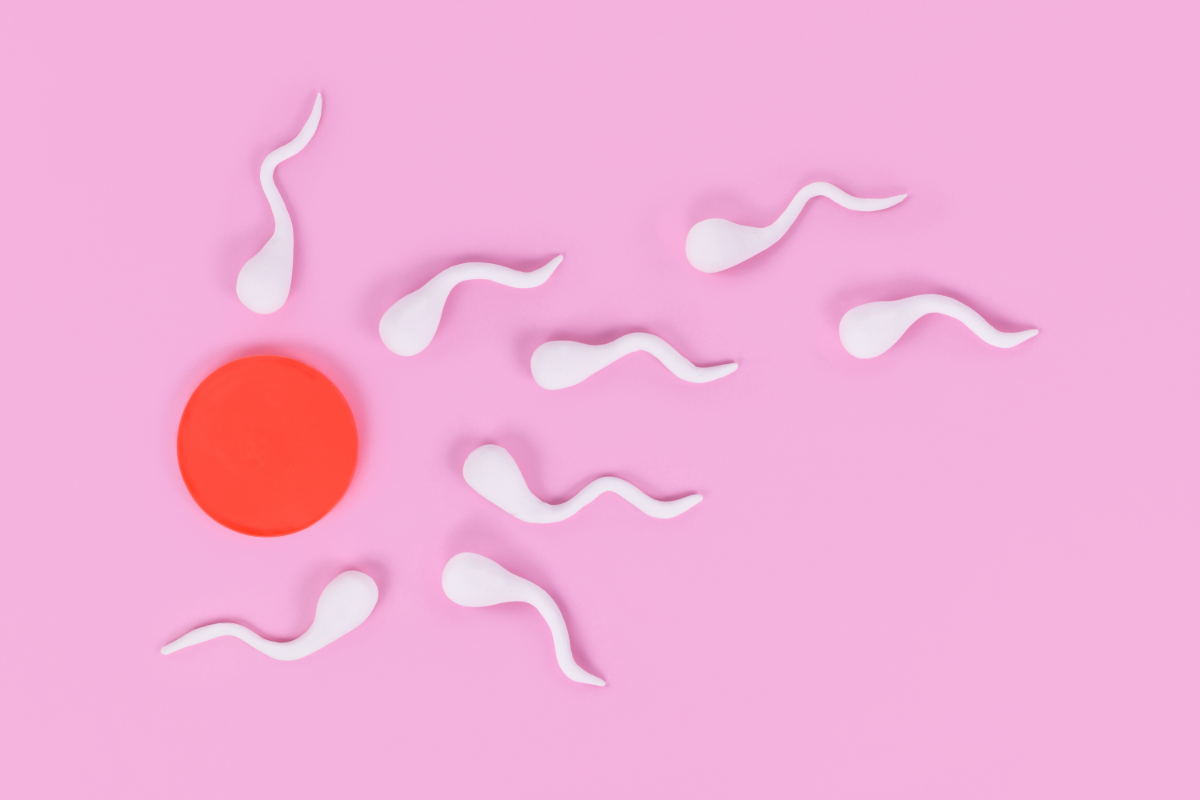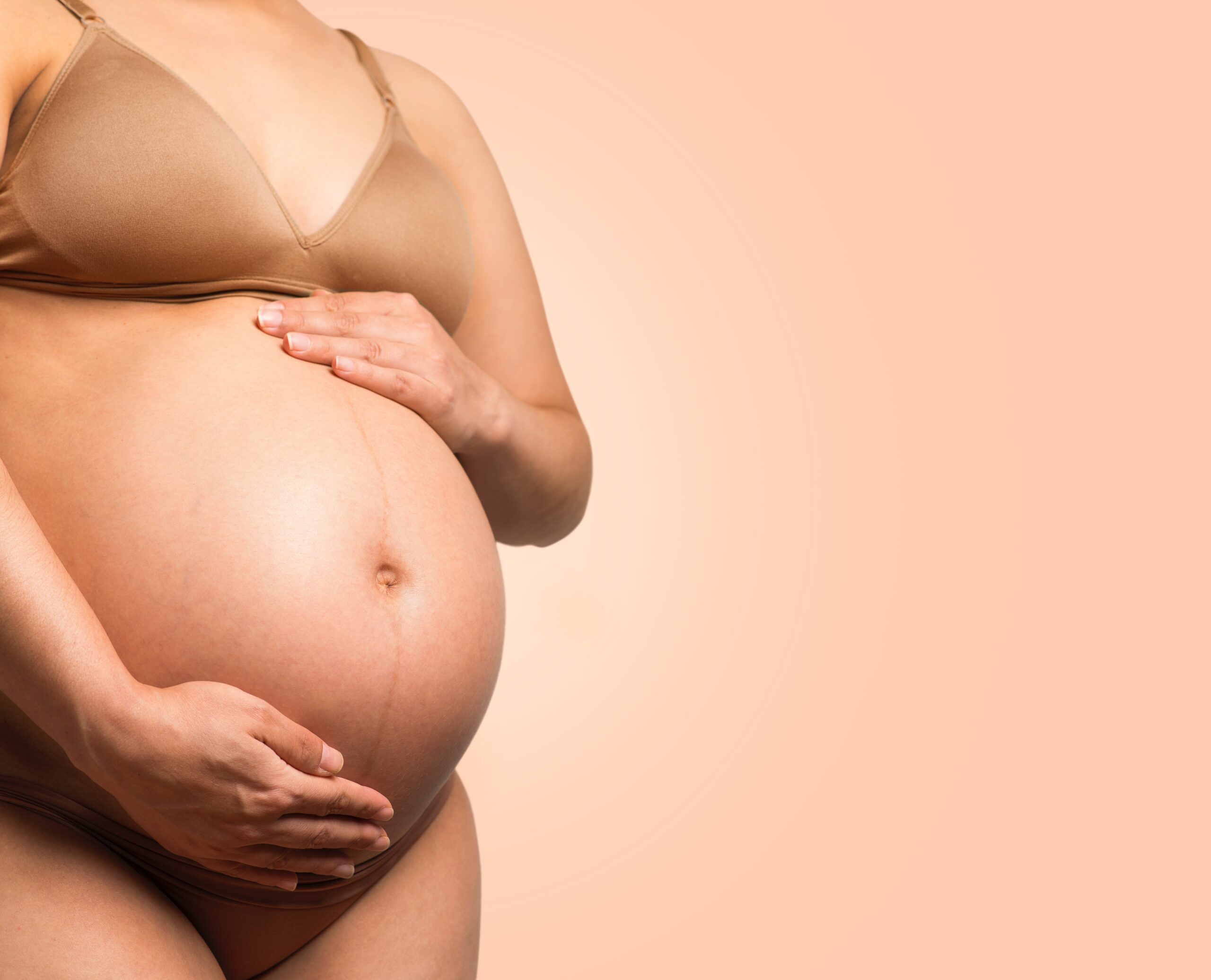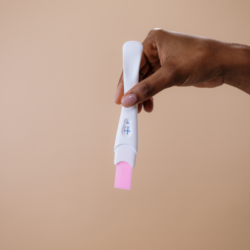Pregnancy is a time of hormonal and emotional changes that raise many questions about your sex life. Is it safe to have sex during pregnancy? In this article, we’ll look at the safety of sex during pregnancy and how sexuality can evolve over the trimesters.
Find out the answers to your questions and tips for a fulfilling sexual life during pregnancy.
Is it safe to have sex during pregnancy?
One of the most common questions couples ask themselves during pregnancy is whether it’s safe to have sex. According to medical data, in a normal pregnancy with no complications such as premature labour or placental problems, the answer is generally yes. The developing baby is well protected by the amniotic fluid in your uterus, as well as by the strong muscular walls of the uterus itself.
Safety for the baby
Penetration and movement during intercourse do not harm the baby, who is isolated by the combined protection of your abdomen and the muscular walls of the uterus. The amniotic fluid also acts as an extra cushion for the baby.
Orgasmic contractions and labour
It’s important to differentiate between contractions experienced during orgasm and labour contractions. These are two distinct phenomena, and orgasmic contractions are not of the same nature as labour contractions. However, as a general precaution, some doctors recommend avoiding all sexual activity during the final weeks of pregnancy. The reason for this is the presence of hormones called prostaglandins in semen, which could theoretically stimulate contractions.
Theories on inducing labour
There are differing medical opinions on the link between sperm and the onset of labour (1). Some doctors believe that the prostaglandins present in semen can actually induce labour, especially if the pregnancy is past term. This theory is supported by the fact that the gel used to ‘ripen’ the cervix and induce labour also contains prostaglandins. However, other experts regard this connection as theoretical and believe that sex does not necessarily lead to the onset of labour.
Sexual comfort and desire
Pregnancy can also bring changes to your comfort level and your sexual desire. These changes vary from woman to woman and may fluctuate at different stages of pregnancy.
When should you stop having sex during pregnancy?
It is crucial to consult your doctor or midwife to discuss the safety of sexual relations during your pregnancy, particularly if you have risk factors or particular symptoms. Here are a few situations in which medical experts may advise avoiding all sexual activity:
High-risk situations
- Risk of miscarriage or history of miscarriage
- Rupture of the water sac
- Placenta too low in the uterus(placenta previa)
- Multiple pregnancy (twins, triplets, etc.)
- Vaginal bleeding, discharge or cramps with no known cause
- Risk of premature labour (contractions before the 37th week of pregnancy)
- Premature opening of the cervix (cervical incompetence)
Limits to the ban
If your doctor recommends that you do not have sexual relations, it is essential to clarify what this means. This may include any activity that leads to orgasm or sexual arousal, not just penetration.
Alarming symptoms
Contact your doctor immediately if you experience any unusual symptoms during or after sex, such as:
- Significant discomfort
- Unusual discharge
- Contractions
- Bleeding
- Pain
Other considerations
It is also important to protect yourself against sexually transmitted infections (STIs) during pregnancy by using barrier methods of contraception such as condoms when engaging in any new sexual activity.
Elements triggering contractions
Breast stimulation, female orgasm and certain hormones in semen called prostaglandins can cause uterine contractions, which may also be a reason why a healthcare professional may recommend avoiding sex.
Is it necessary to use a condom during pregnancy?
The question of condom use during pregnancy is often raised, particularly with regard to the transmission of sexually transmitted infections (STIs) and their potential impact on mother and child. It is essential to understand that contracting an STI during pregnancy can lead to serious health complications for you and your baby.
Risks of STIs during pregnancy
Scientific studies have shown that contracting an STI during pregnancy can lead to risks such as premature delivery, neonatal infections and even developmental problems in the child. It is therefore crucial to eliminate any risk of STI transmission during this period.
Using a condom: When?
We recommend using a condom if :
- You are not in a mutually monogamous relationship
- You choose to have sexual relations with a new partner during pregnancy
It is also imperative to abstain from all forms of sexual intercourse – whether vaginal, oral or anal – if your partner has an active STI or has recently been diagnosed with one.
Monogamous relationships and STI tests
If you are in a monogamous relationship and have both been tested for STIs with negative results, condom use may be less crucial in terms of STI transmission. Nevertheless, an open discussion with your partner and your doctor remains essential to assess your personal situation.
The medical point of view
Always consult a health professional for advice specific to your situation. An in-depth discussion with your gynaecologist or midwife can provide you with additional, personalised information about the need to use a condom during your pregnancy.
Changing sexual needs throughout pregnancy
Women’s relationship with sex can vary considerably during pregnancy, influenced by a multitude of physiological and psychological factors.
First trimester: between fatigue and nausea
The first trimester is often synonymous with upheaval. Between morning sickness, mood swings and tiredness that never seems to end, your sexual desire can suffer. Some women even experience pelvic pain due to hormonal changes, which can make sex uncomfortable.
But it doesn’t have to be that way! Take the time to adapt to your new body. Open communication with your partner can help create an environment where everyone feels understood and respected. Sometimes a simple cuddle session can do wonders for youremotional well-being, which in turn can have a positive impact on your libido.
It’s important to note that this drop in libido is often temporary and desire can return over time.
Second trimester: Increased libido
The second trimester is often characterised by an increase in libido for many women. One scientific explanation for this is theincreased blood flow in the body, which can even intensify orgasms. It’s also a time when women may feel more in tune with their sexuality due to bodily changes such as breast enlargement.
It’s the perfect time to explore and enjoy your sexuality. You can experiment with different positions to find what suits you best. And remember, sex isn’t just about penetration; there are many other ways to feel intimate and satisfied.
Third trimester: Comfort and caution
In the third trimester, the proximity of childbirth can make sex uncomfortable for some women. At this stage, communication with your partner is crucial to finding positions that minimise pressure on the abdomen. Avoiding the missionary position after the fourth month is generally recommended to avoid constriction of the large blood vessels by the weight of the growing baby.
For some women, anticipation and excitement can act as catalysts for libido. For others, the physical discomfort and anxiety associated with the imminence of childbirth can have the opposite effect.
The key is to remain adaptable. Positions that were comfortable in the second trimester may become impossible to achieve. Additional lubrication may be required, and certain sex toys may come to the rescue to offer different types of pleasure.
Bear in mind that every woman is different. What’s true for one may not be true for another. The best thing to do is to listen to your body and communicate openly with your partner. You’re both in this together, and the key to maintaining a fulfilling sex life lies in mutual respect for your changing needs and limits.
General recommendations
- Use a lubricant if you experience vaginal dryness.
- Explore other forms of intimacy such as cuddling, kissing or massage.
- For couples with an unclear sexual history, the use of condoms is strongly recommended, as pregnancy offers no protection against STIs, which can affect the baby.
It is always advisable to consult a healthcare professional for individual recommendations, especially if unusual symptoms such as pain, bleeding or contractions occur after sexual activity.
Can sex toys be used during pregnancy?
In the context of sexuality during pregnancy, the use of toys and erotic accessories can be used to diversify practices and maintain a certain level of pleasure. However, there are specific aspects to this use that need to be taken into account, particularly in terms of material safety and the materials used.
Check the safety standards of your sex toys
Before any use, it is essential to ensure that erotic toys and accessories comply with current medical standards. This generally means that these objects have been tested and validated for their harmlessness, absence of toxicity and resistance to bacterial proliferation. Certification or a seal of approval from recognised medical organisations can often serve as indicators of compliance.
Hypoallergenic materials for the intimate area
The choice of materials is another crucial consideration. Materials should be hypoallergenic to minimise the risk of allergic reactions or skin irritation. Materials such as medical silicone, glass and certain types of plastic are generally considered safe.
Care and hygiene of sex toys
Hygiene is an important aspect. Toys must be easy to clean and disinfect to avoid any risk of infection. They should also be inspected regularly to ensure that there are no material defects that could pose safety problems.
FAQ
- What are the best positions during pregnancy?
-
- The spoon position and the modified missionary are often recommended.
- Can sex trigger premature labour?
-
- No, unless there are specific contraindications.
- Can I use sex toys during pregnancy?
-
- Yes, as long as they are safe and comply with medical standards.
- Do hormones affect libido during pregnancy?
-
- Yes, they can both stimulate and inhibit libido.
- Can I take food supplements to improve my libido?
-
- Always consult a health professional before taking supplements.
Source:
- https://pubmed.ncbi.nlm.nih.gov/21521481/
- https://www.ncbi.nlm.nih.gov/pmc/articles/PMC8910547/
- https://www.cmaj.ca/content/183/7/815.short
- https://www.ncbi.nlm.nih.gov/pmc/articles/PMC1405157/pdf/amjph00206-0135.pdf
- (1) https://www.ncbi.nlm.nih.gov/pmc/articles/PMC7017007/







